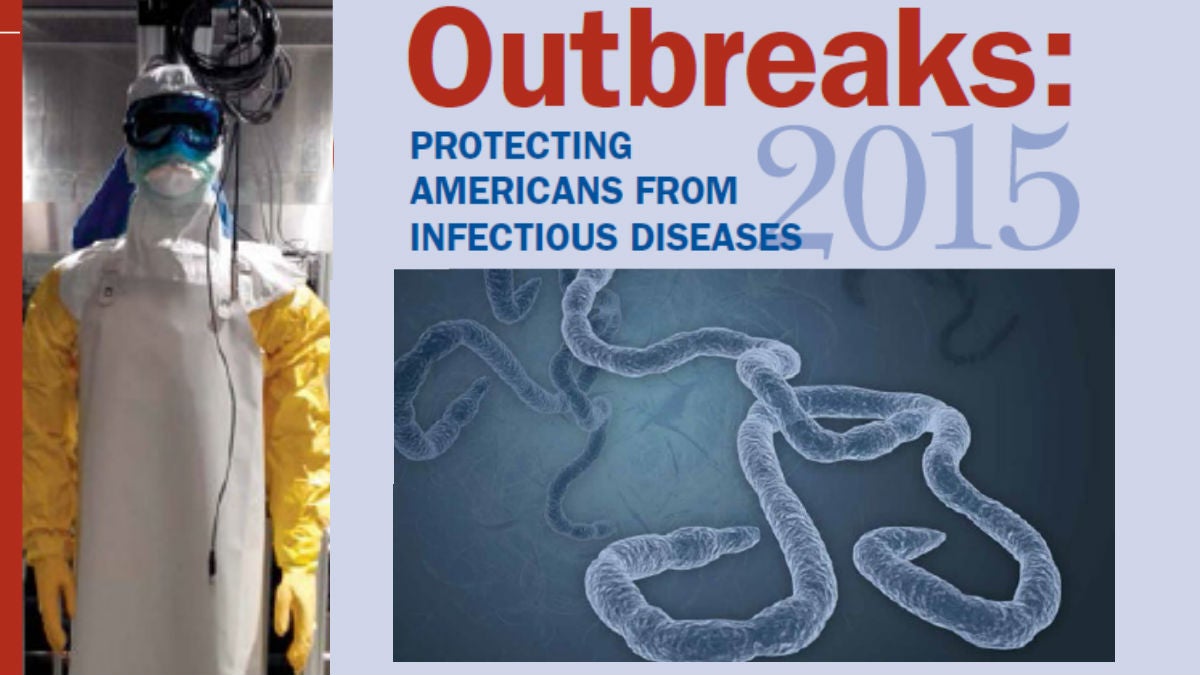Delaware scores high on infectious diseases report

Delaware scored eight out of 10 in the Outbreaks: Protecting Americans from Infectious Diseases report, tying with Kentucky, Maine, New York and Virginia for the top score.
Delaware tops the list of states prepared for responding to infectious disease outbreaks.
In the Outbreaks: Protecting Americans from Infectious Diseases report, released Thursday, which grades states on their success preventing, detecting, diagnosing and responding to infectious disease outbreaks, Delaware scored eight out of 10 in, tying with Kentucky, Maine, New York and Virginia for the top score.
Paul Silverman, public health associate deputy director for Delaware’s Department of Health and Social Services, said the results aren’t surprising, and represent the work the state has done in the area of diseases.
“It’s nice to know we did well on this,” She said. “The purpose of this report is to draw attention to certain needs and it’s nice to have a conversation about it.”
Trust for America’s Health and the Robert Wood Johnson Foundation, which conducted the report, say the U.S. must improve efforts to protect Americans from new infectious diseases and antibiotic-resistant superbugs and resurging illnesses like whopping cough, tuberculosis and gonorrhea.
“The overuse of antibiotics and underuse of vaccinations along with unstable and insufficient funding have left major gaps in our country’s ability to prepare for infectious disease threats,” said Jeffrey Levi, executive director of TFAH, in a statement.
“We cannot afford to continue to be complacent. Infectious diseases – which are largely preventable – disrupt the lives of millions of Americans and contribute to billions of dollars in unnecessary healthcare costs each year.”
Researchers graded states on indicators that represent examples of important capabilities, policies and trends, and were selected in consultation with leading public health and healthcare officials.
The study found that Delaware succeeded in public health funding, providing flu vaccinations, meeting child immunization school requirement policies, reporting HIV and AIDS cases, utilized needle exchange programs, meeting requirements at laboratories and meeting food safety goals.
Silverman said Delaware has worked hard to improve food safety in the state.
“We have been very aggressive about improving our food safety programs. We have made it more transparent by posting all the inspection results on our website,” he said. “We have revised regulations to modernize them so that’s one area we’re proud of.”
Silverman said the state also has been on the frontline of fighting the flu by promoting the importance of the flu vaccination. He said this was partly due to the severity of H1N1.
“We didn’t know how severe that particular strain was going to be,” he said. “There was a lot of anxiety, and a lot of attention on flu, and I think that helped make people more aware of influenza and its importance. When that occurred we really increased the amount of influenza promotion that we do.”
However, the report shows Delaware didn’t beat the standardized infection rate of CLASBI, or Central Line-Associated Bloodstream Infections.
“This report is saying we didn’t reduce the number. But our number is already low,” Silverman said. “We by law monitor hospital infections and report them by hospital. Our rate is already below hospitals of similar size across the nation.”
The report also said the state doesn’t have a climate change adaption plan. Silverman said there is one already in process, however.
He said Gov. Jack Markell, D-Delaware, made an executive order to develop a plan to respond to climate change, which was managed by the Department of Natural Resources and Environmental Control, and the health department was a part of the recommendation process.
Silverman said these issues adressed in the report are important concerns that public health takes very seriously.
“One of public health agencies’ fundamental core responsibilities is to be prepared,” Silverman said.
“When we have situations like Ebola in the United States, or exotic influenza that nobody expected or outbreaks of disease it’s the public health agency’s responsibility for identifying when they come, putting plans in place to address them, protecting the public, ensuring there are sufficient supplies for people who are infected and we’ve developed over the years quite the infrastructure to do that.”
WHYY is your source for fact-based, in-depth journalism and information. As a nonprofit organization, we rely on financial support from readers like you. Please give today.





